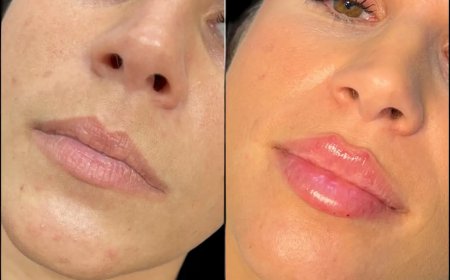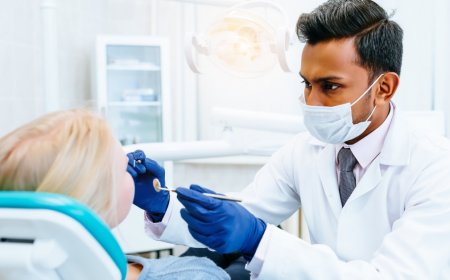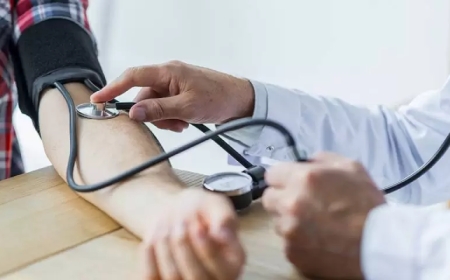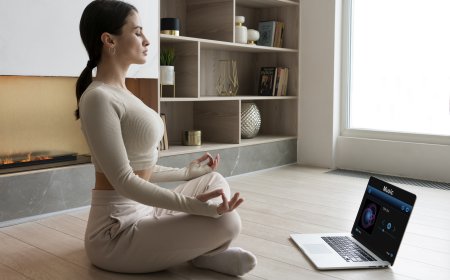The Complete Guide to What Happens During a Colonoscopy at a Colonoscopy Clinic
In this comprehensive guide, we’ll explain what to expect before, during, and after a colonoscopy so you can walk into your appointment with confidence.
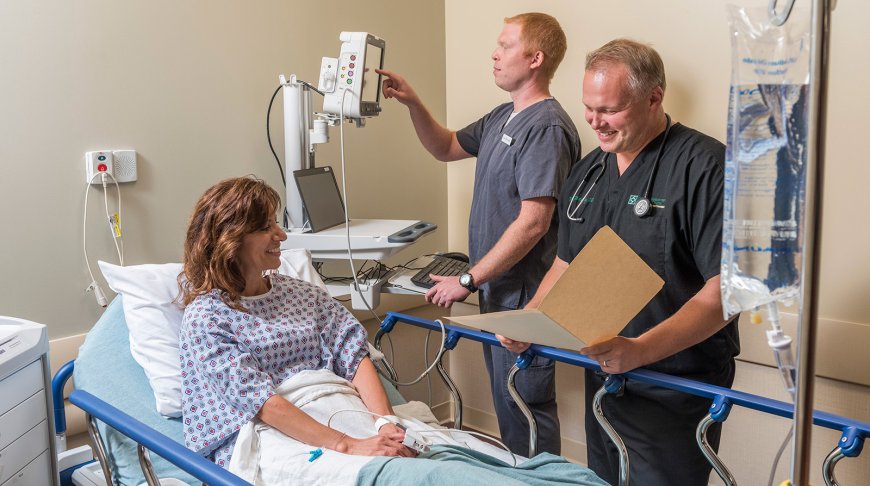
If youve been advised to get a colonoscopy or youre scheduling one for the first time, its natural to feel a little anxious. Understanding what happens during the procedure can ease your mind and help you prepare. A professional colonoscopy clinic ensures that the experience is safe, comfortable, and vital for maintaining digestive health.
Why Get a Colonoscopy?
A colonoscopy is a preventive and diagnostic procedure that allows doctors to closely examine the lining of your colon and rectum. It helps detect:
-
Precancerous polyps
-
Colorectal cancer
-
Inflammation or irritation
-
Unexplained digestive symptoms like bleeding or chronic abdominal pain
A qualified colonoscopy clinic can perform this procedure safely, offering early detection that saves lives and prevents serious disease.
When Should You Visit a Colonoscopy Clinic?
Routine screenings are recommended for adults starting at age 45. You may need one sooner if you have:
-
A family history of colon cancer or polyps
-
Symptoms such as rectal bleeding, unexplained weight loss, or changes in bowel habits
-
A personal history of inflammatory bowel disease or previously removed polyps
Your doctor at a colonoscopy clinic will determine the appropriate timing for your screening based on your risk factors and symptoms.
How to Prepare for a Colonoscopy
Preparation is crucial for a successful colonoscopy. A clear colon allows the doctor to see any abnormalities without obstruction. Your colonoscopy clinic will give you detailed instructions, which typically involve:
-
Following a clear liquid diet the day before the procedure
-
Taking a prescribed laxative or bowel preparation solution to empty the colon
-
Avoiding solid foods, alcohol, and certain medications as directed
Good preparation helps ensure an accurate, thorough examination.
What Happens When You Arrive at the Colonoscopy Clinic
Upon arrival at the colonoscopy clinic, youll check in and review your medical history and medications with the healthcare team. Youll then be prepped for the procedure, which includes:
-
Changing into a hospital gown
-
Having a small IV inserted for sedation
-
Discussing sedation options and signing consent forms
The staff will explain the process and address any last-minute questions you may have.
The Colonoscopy Procedure: Step by Step
A colonoscopy typically takes between 30 to 60 minutes and is performed in a dedicated procedure room within the colonoscopy clinic.
1. Sedation
Youll receive a sedative or light anesthesia through your IV to ensure comfort. Most patients feel relaxed and have little or no memory of the procedure.
2. Scope Insertion
The doctor inserts a thin, flexible tube (colonoscope) with a small camera through the rectum into the colon. This instrument transmits images to a monitor, allowing the physician to examine the entire colon lining.
3. Inspection and Polyp Removal
As the scope is gently advanced, the doctor looks for polyps, abnormal tissue, or signs of disease. If polyps are found, they can be removed immediately. Tiny instruments passed through the scope allow for removal or biopsy of suspicious areas.
4. Completion and Recovery
Once the examination is complete, the scope is withdrawn. Youll be taken to a recovery area to rest while the sedation wears off. Most people are fully alert within 30 minutes to an hour.
After the Colonoscopy
After your procedure at the colonoscopy clinic, youll receive post-procedure instructions, which may include:
-
Arranging for a ride home, as sedation effects can linger for several hours
-
Resuming light foods and hydration once youre fully awake
-
Expecting minor bloating or gas, which typically resolves within hours
Your doctor will discuss any immediate findings before you leave and arrange a follow-up call or appointment to review biopsy results, if applicable.
How Safe Is a Colonoscopy?
A colonoscopy is considered one of the safest procedures in modern medicine. While complications are rare, potential risks include:
-
Minor bleeding from polyp removal sites
-
Perforation of the colon wall (extremely rare)
-
Reactions to sedation
A professional colonoscopy clinic minimizes these risks with experienced staff and advanced technology.
When Will You Get the Results?
Results are typically available within a few days. If biopsies were taken or polyps removed, the clinic will call to discuss the findings. Most patients receive a follow-up appointment or phone consultation to go over results and schedule future screenings if needed.
Why Choose a Professional Colonoscopy Clinic
Choosing a skilled, well-equipped colonoscopy clinic ensures:
-
Board-certified gastroenterologists and experienced nurses
-
Advanced high-definition imaging for accurate results
-
Safe, personalized sedation options
-
Timely and clear communication about test results
-
Comfortable, supportive patient care environment
The right clinic prioritizes your safety, comfort, and health outcomes.
FAQs About Colonoscopy Clinics and the Procedure
Q1: Is the procedure painful?
No. Thanks to sedation, most patients feel nothing during the colonoscopy. Some experience mild cramping or bloating afterward, which resolves quickly.
Q2: How long does a colonoscopy take?
The procedure usually takes 30 to 60 minutes, depending on whether polyps or biopsies are involved.
Q3: Can I go back to work after a colonoscopy?
Its advised to rest at home for the remainder of the day since sedation may cause drowsiness and affect coordination.
Q4: What if polyps are found?
Most polyps are benign and can be removed during the procedure. Theyre sent to a lab for analysis, and your colonoscopy clinic will follow up with the results.
Q5: How often should I have a colonoscopy?
For those at average risk, once every 10 years after age 45. If polyps are found or you have risk factors, your doctor may recommend more frequent screenings.
Final Thoughts
Getting a colonoscopy is a straightforward, important step in protecting your health. A trusted colonoscopy clinic provides safe, thorough, and compassionate care from preparation to recovery. Understanding what to expect during the procedure makes the experience less intimidating and highlights its importance in preventing colorectal cancer and other digestive issues. Dont delay your screening; early detection is your best defense.




























